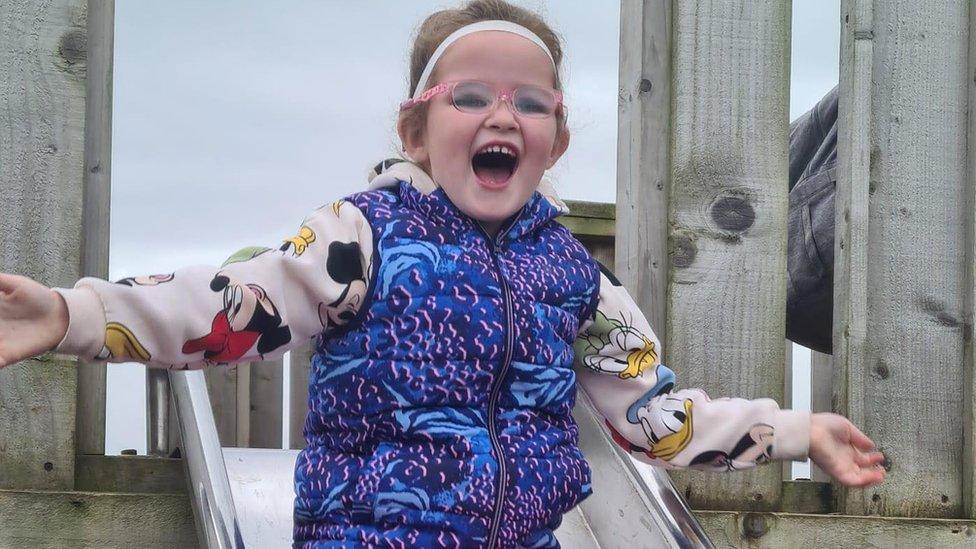Teen aiming to become first deaf F1 driver
F1: Deaf racing enthusiast hears car for first time
- Published
A 16-year-old has his sights set on becoming the world’s first deaf F1 driver.
Caleb McDuff, from Newport, became deaf when he was two years old, after a number of severe ear infections.
His parents made the decision to have cochlear implants fitted which allow him to experience the sensation of hearing.
However, they were told the impact of this would mean Caleb had to avoid contact sports.
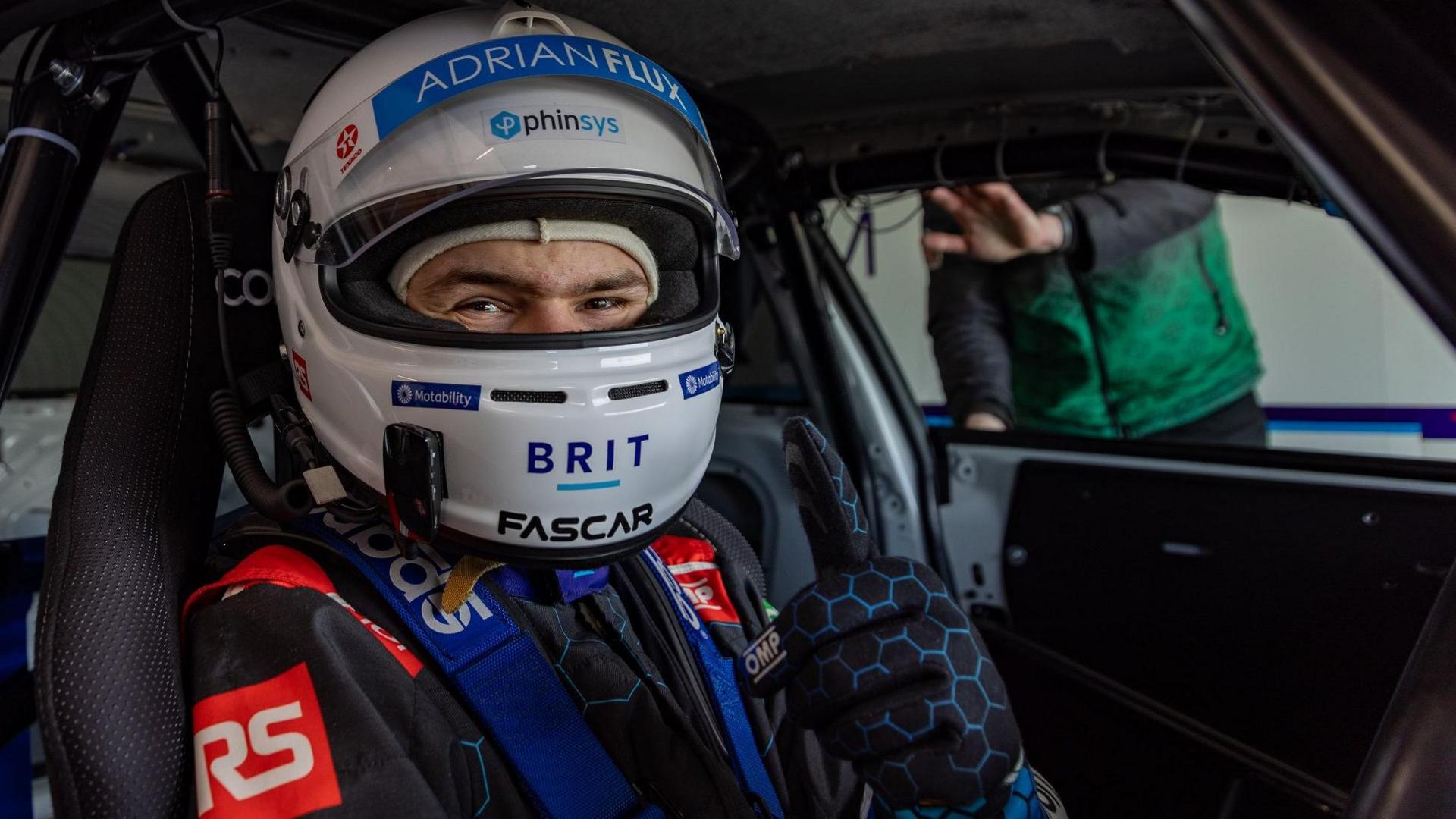
Caleb McDuff, 16, started racing when he was four and wants to make it to F1
After learning this, his dad, Ian McDuff, quickly started researching activities that would be accessible.
“I came across a Canadian driver called Kris Martin who's a deaf driver trying to get in NASCAR and he sort of inspired me to look at motor sport,” he said.
He bought four-year-old Caleb a go-kart for Christmas and he’s been racing ever since.
“I don’t know what I would be doing if I wasn’t racing,” Caleb said.
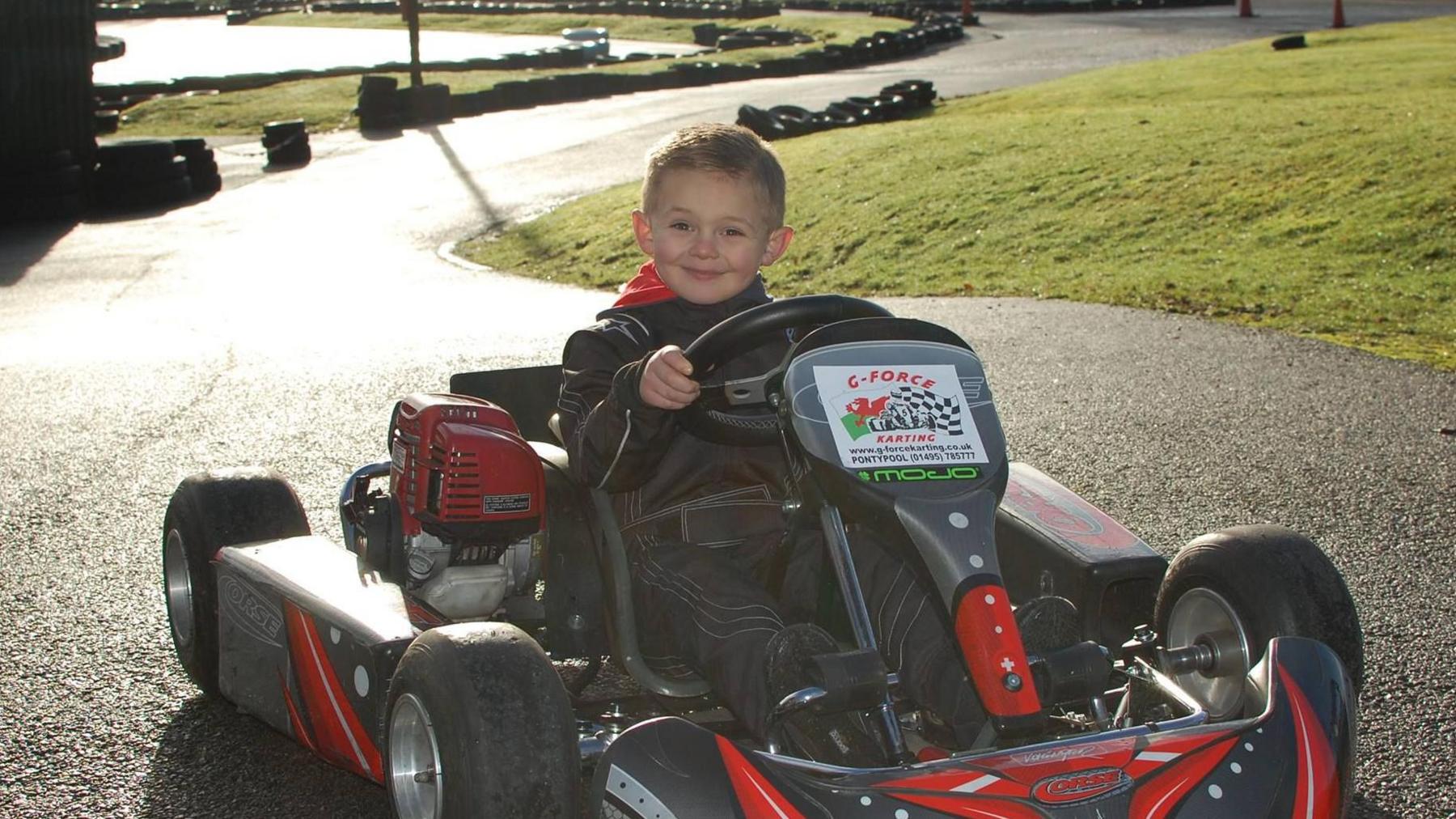
Caleb started racing when he was just four years old
Until last year, Caleb wasn't able to use his cochlear implants comfortably under his helmet which meant taking them out and driving in complete silence.
However, he said that this challenge has made him the driver he is today.
“I think it helped me focus more on what's ahead of me than what’s surrounding with the sound.
“It makes me a unique person, because people will be like, ‘how do you race in silence?’, and I'm like ‘that’s just me’.”
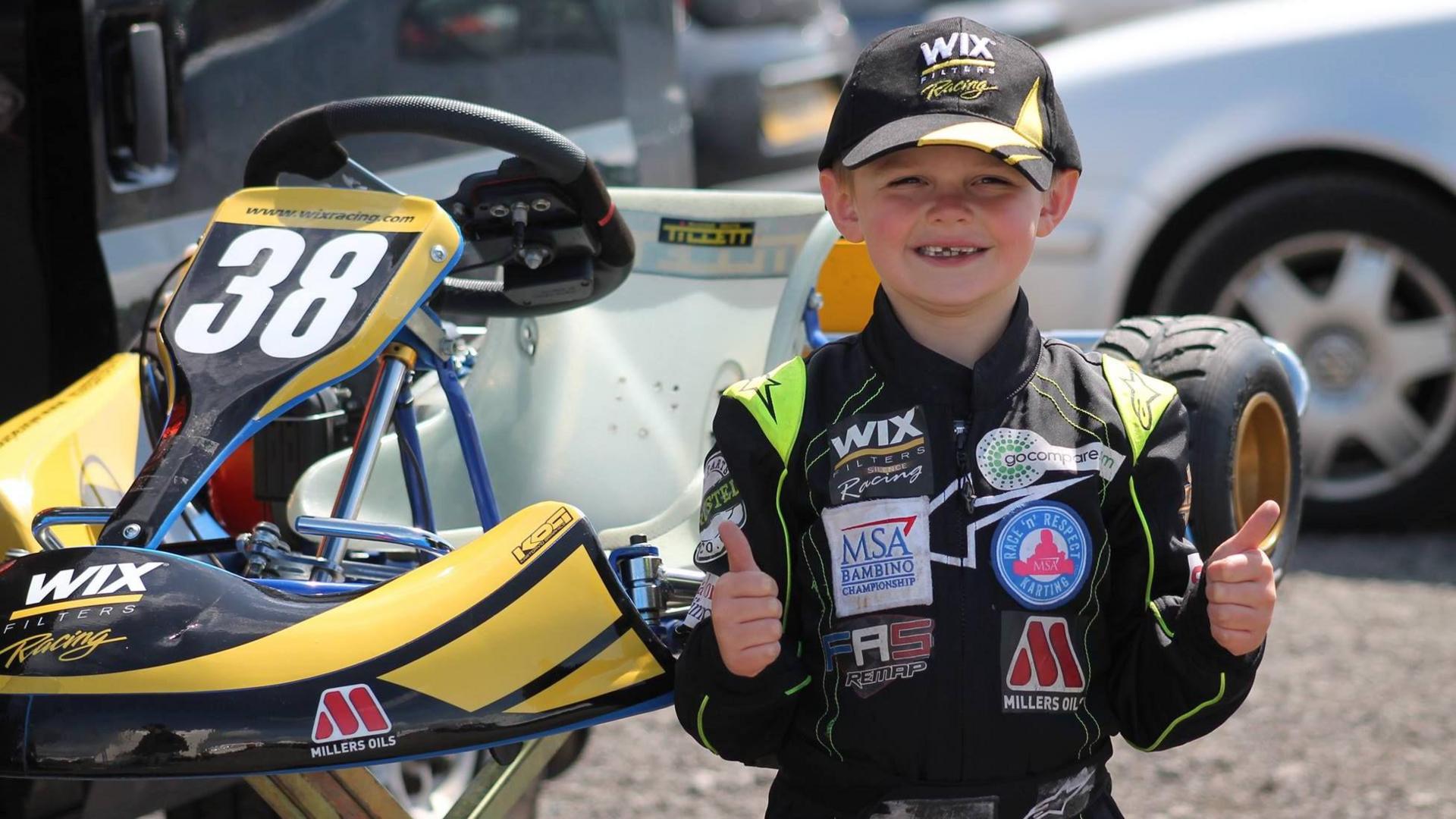
Caleb raced in total silence until he was 15 years old
Ian said Caleb has learnt how to feel the car rather than listen to it.
“He actually felt the car changing in different situations which was very impressive.
‘”He could even feel the presence of another kart because the air vibration was different.”
But, despite excelling as a silent driver, there were limitations to the level he could compete at without hearing.
That changed when Caleb signed for Team BRIT, the world’s first competitive all-disabled team earlier this year.
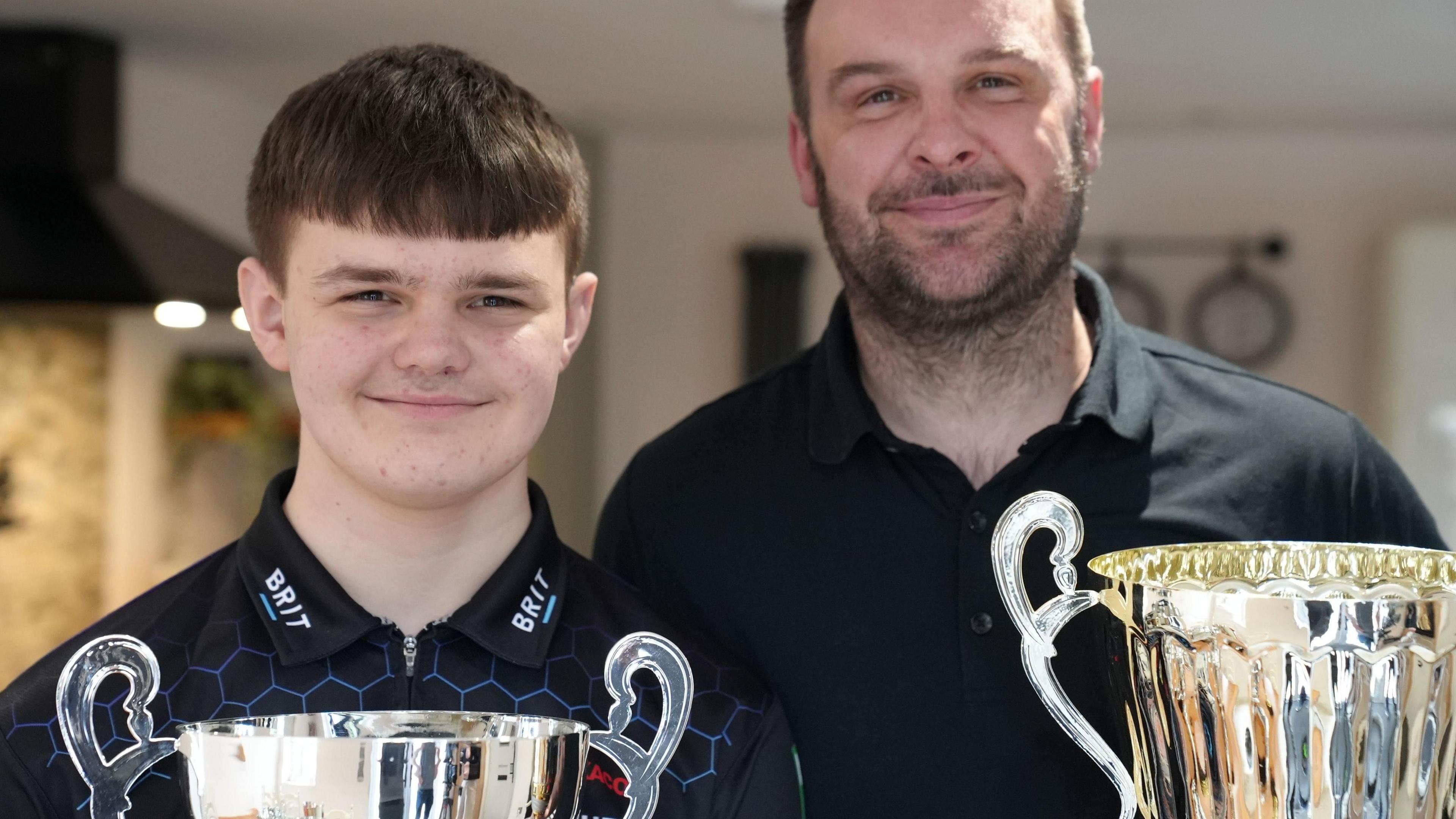
Caleb says racing in silence has made him a "unique" driver
The team has been working to design new ways of communicating with him.
Team BRIT's Lucy Sheehan explained: “Caleb’s cochlear implants have sound processors.
“They listen and transmit signals through his skull into receivers which are connected to the nerve in his ears.
“We've created a technology which means he can wear the processors outside of his helmet.’’
It means, for the first time, he can communicate with his engineer and team radio, but most significantly, he can also hear the car.
Deaf and blind marathon runner on track for Everest
- Published22 April 2024
The 16-year-old living her F1 racing dream
- Published21 October 2023
Deaf fan 'proud' of player's signing celebration. Video, 00:01:32
- Published20 April 2024
Describing the feeling of racing with sound, Caleb said “when you exit the pits and just floor down the car and the best part of going from first, second to third and just hear that roar from the engine.
“Just to hear all that pops and bangs, that’s the best part of racing I’d say.”
The team are now working with Caleb on other ways of communicating with deaf drivers, including those who don’t use cochlear implants.
Caleb hopes that with this new technology he will one day be able to compete in the same racing class as his idol, Sir Lewis Hamilton.
“That’s the top motorsport you could ever be in. If I was to make it to F1, I will be the first deaf F1 driver. If we get there fast enough.”
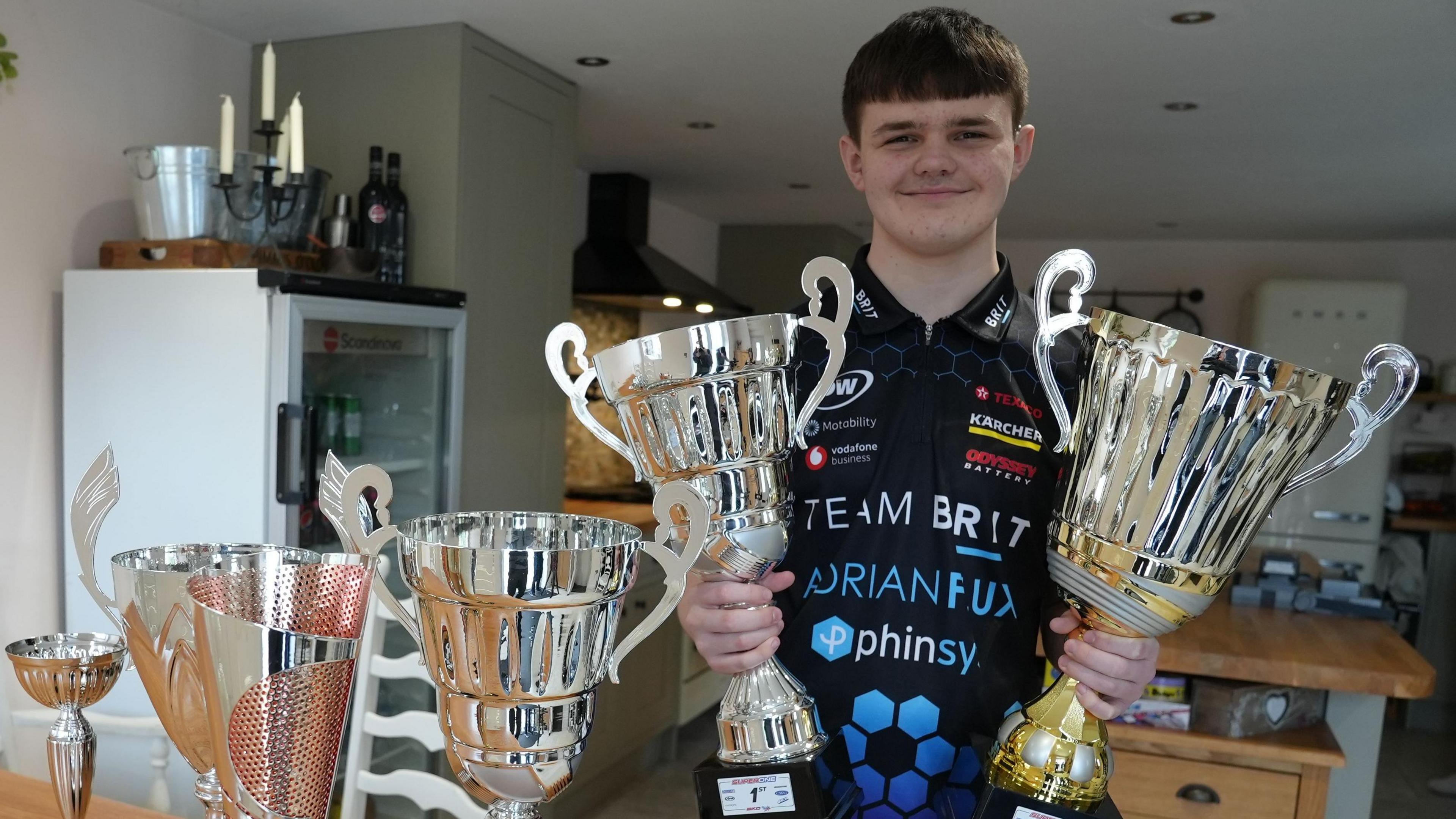
Caleb says he did not let his deafness stop him following his dreams
However, one of the major barriers on achieving this dream is the cost of competing in F1.
“It’s a very expensive sport and financially I can only go so far. So we have to find financial backing as well,” said Ian.
“So, even if he’s the best driver in the world, if we haven’t got the right back up behind us then it’s not going to go much further.”
But, for Ian, he gets enough out of watching his son excel in the sport.
“To think back to when we first learned he was deaf that we just didn't think he have a career in any kind of professional sport or that he may have even struggled to get some ordinary jobs.
“We were completely unaware of what was possible."
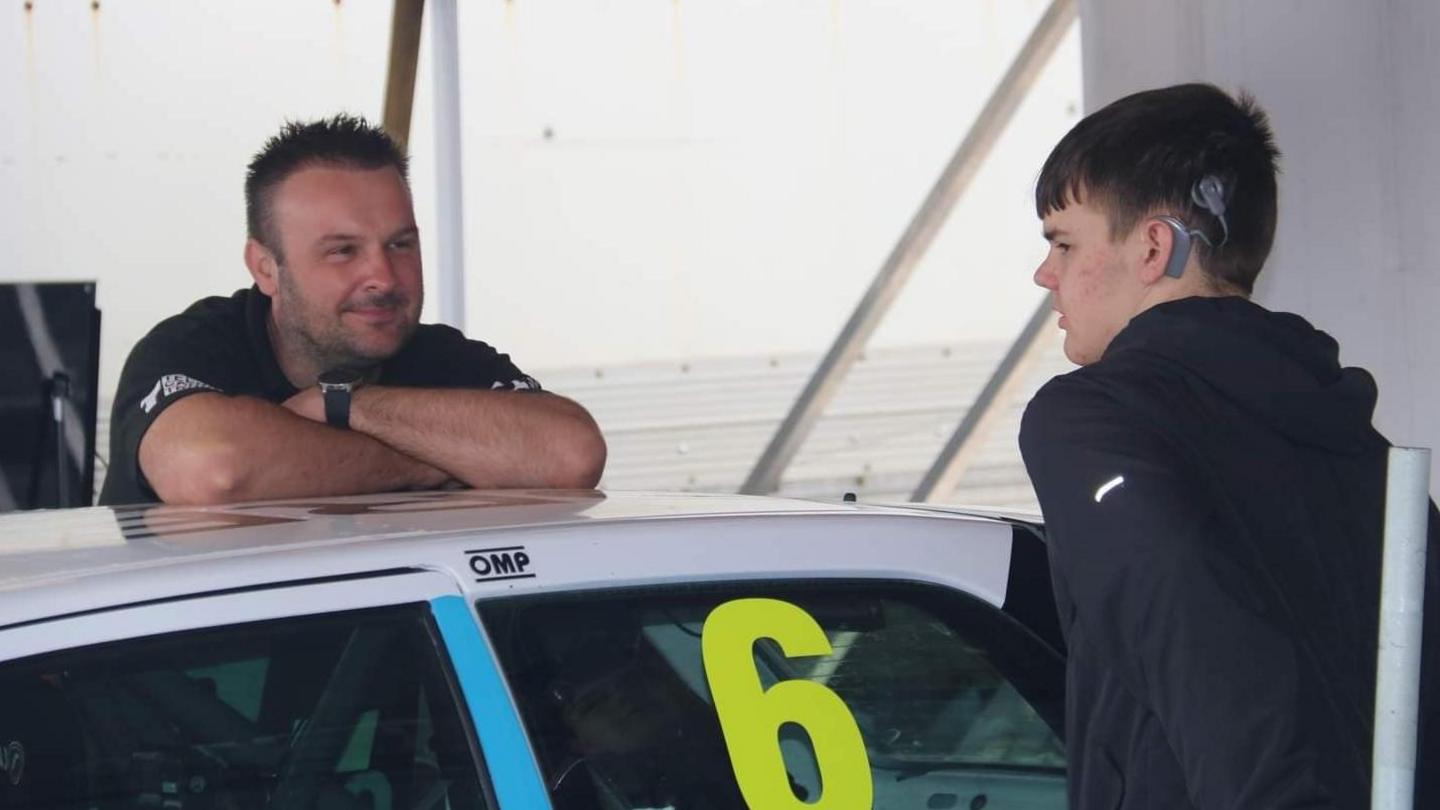
Ian says he is "in awe" of his son Caleb
His dad said: “Everybody is just in awe of him and I'm in awe of him and he just doing such a good job.
“It’s just incredible that this little kid from south Wales is becoming a star.”
It is important for Caleb that he shows people you can achieve whatever you set your mind too.
He said "What I want to do is show people that your disability doesn't stop you from doing what you want to do.
“Keep being you and just follow your dream, because like, I am deaf but I didn't let that stop me.”
You can see more on this story on BBC Wales Live on iPlayer.
Related topics
- Published26 April 2024

- Published20 February 2024
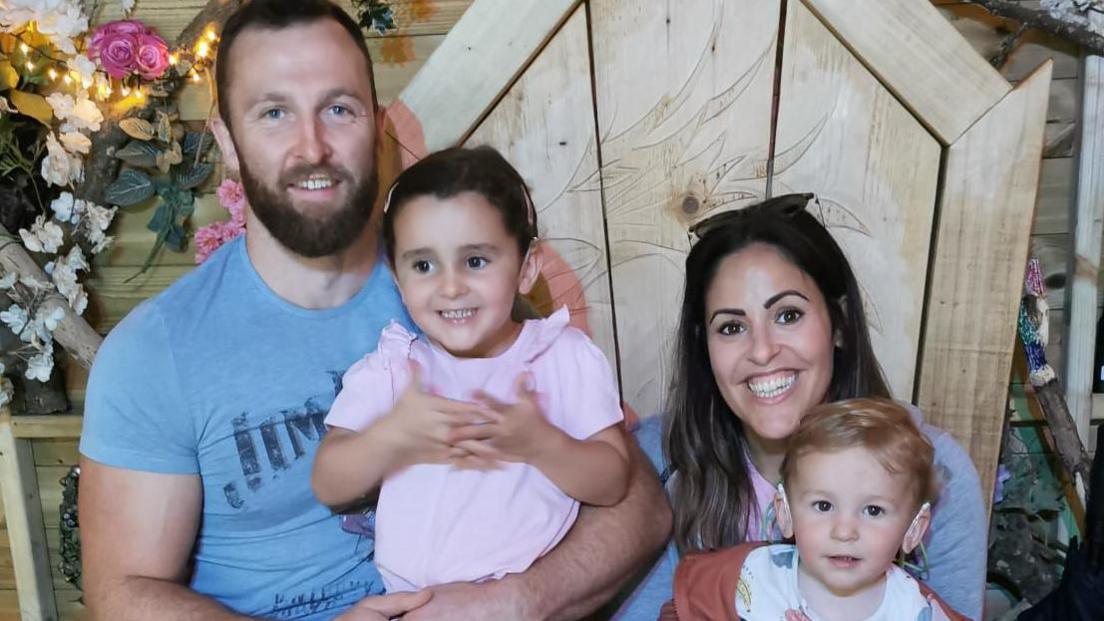
- Published31 March 2024
